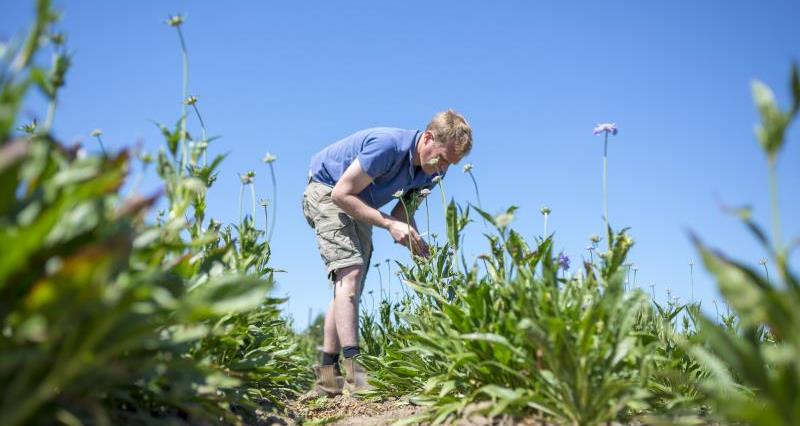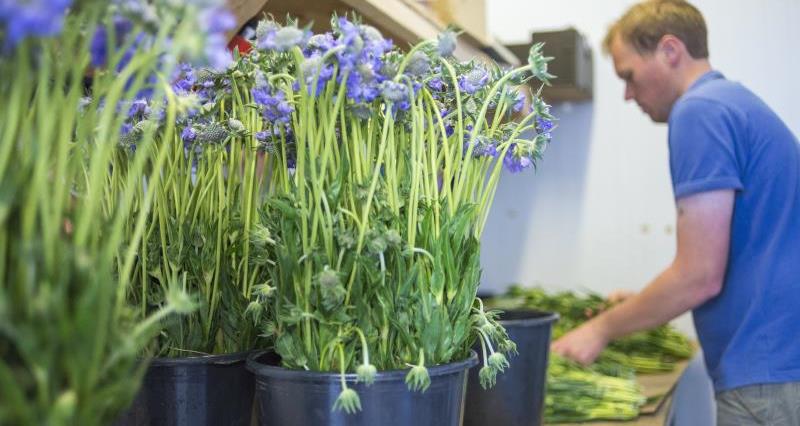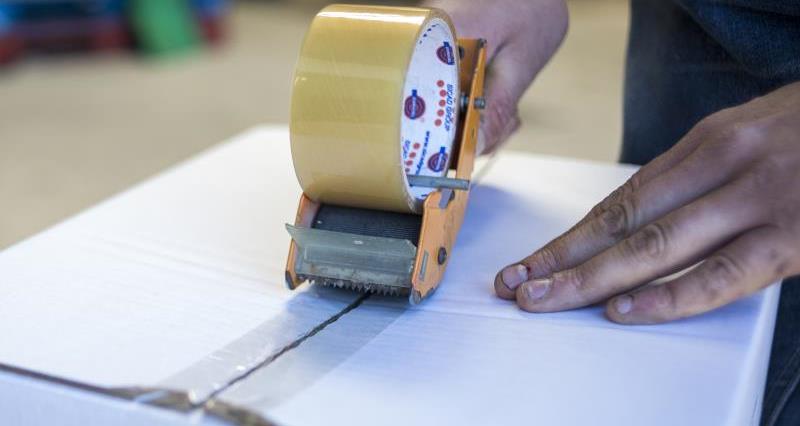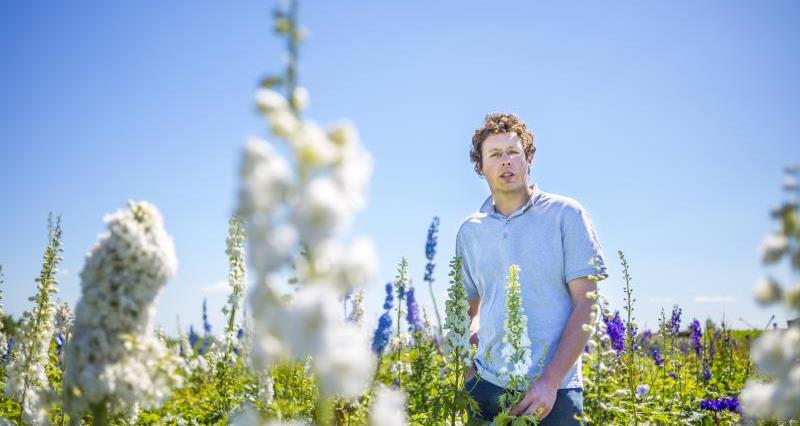British Farmer and Grower takes a look over the farm gate with NFU member William Tyrrell to learn about the nuances of being a flower grower in modern Britain
Mr Tyrrell farms in collaboration with his father and his brother Sam who also has a different full time job but helps in the evenings and weekends. The flower cutting season lasts between late-winter and finishes in September, but Mr Tyrrell stresses how important the weather is in terms of British flower growing. He says: “You can scheme, you can plan, but if the weather doesn’t play ball, the plan won’t happen.”

He continues: “The daffodils recovered surprisingly well from the cold weather, but the delphiniums started a bit late and finished a bit earlier than normal. At present, it’s difficult to keep them all sufficiently irrigated.”
Flower growing is a labour intensive job, with all Tyrrells’ flowers hand-picked and hand-packaged. There are machines available to help with the process in the wider industry, according to Mr Tyrrell, but can only be used with certain types of flowers and is usually associated with bigger flower-growing operations than theirs.
Mr Tyrrell explains that his family began to grow flowers out of a need to compete with big scale farms: “We farm around 150 acres here, and purely farming combinable crops in that size of an area wouldn’t be enough to support two and a half households, so we had to diversify.”

Apart from a 10-year gap in the 1990s, the Tyrrells have been growing flowers consistently since the 1940s when Britain was getting itself back together post-war. The downturn of the arable industry in the early 2000s meant that the Tyrells returned to their roots of growing flowers, but not without doing some market research first.
Mr Tyrrell says: “At that point, my parents spoke to different wholesalers and markets and they pointed us in the right direction of what to grow. So we don’t grow tulips any more, but we do grow delphiniums, sweet williams, daffodils, scabious, larkspur and nigella as well as producing daffodil bulbs.”
He continues: “It’s a very interesting time to be a flower grower in Britain at the moment. In my opinion, there used to be a reputation a few years ago that British flowers weren’t good. But the industry has cleaned itself up and decided that it needs to compete with Holland on quality, because we can’t compete on climate or price.”

Like most horticultural endeavours, the Tyrells’ operation relies on seasonal employees and also works with a local farmer contractor to ensure their harvest is productive. NFU horticulture and potatoes board chairman Ali Capper has spoken about the matter on a number of occasions in the national press. She says: “Farmers and growers need to know how the government will deal with the need from industries that rely on seasonal workers and the NFU is calling for reassurance farmers will be able to source a reliable and competent workforce both now and in the future.”
So what of the future of the industry? Mr Tyrrell has decided to focus on the present for now. He says: “To be honest, it’s not easy with Brexit ahead of us, but it’s good at the moment and that’s something at least.”
Content from the NFU’s award-winning members’ magazine, British Farmer and Grower. Find out more about our outstanding suite of publications here.
